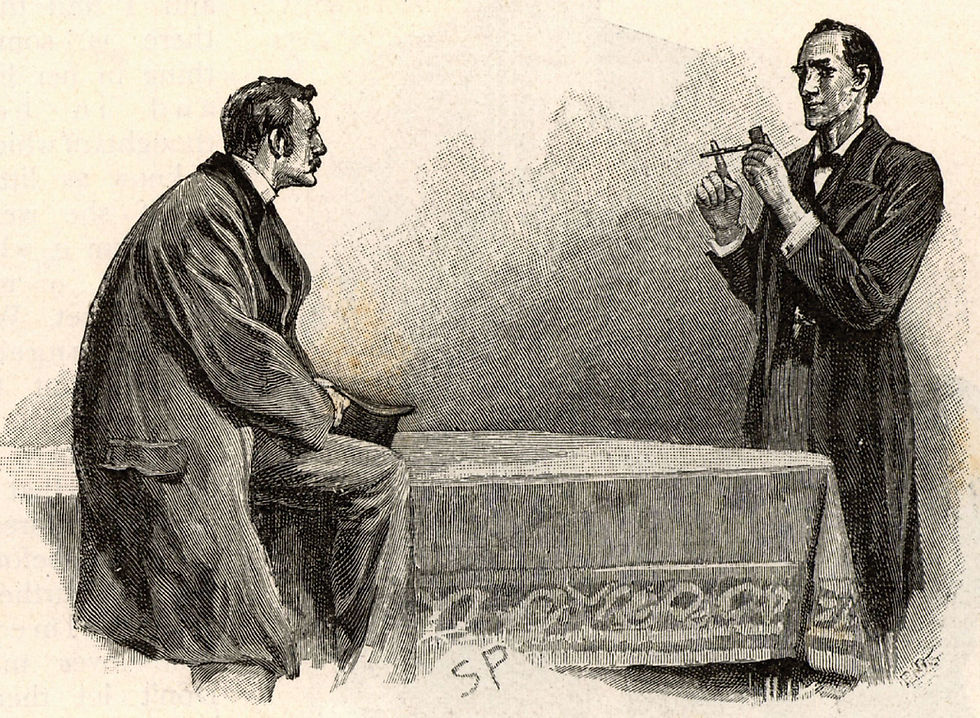The metaphor of the two sides of the street
- Apr 2, 2024
- 4 min read
Tuesday 4/2/24
We have a street. One one side of the street is a person by themselves. They have something in front of them--we can't quite tell what. On the other side of the street is a throng. The throng is assembled in that way where it's like everyone is crowded around something that's in the center of that throng, but outside of the throng--like on the other side of the street--one wouldn't know what. With the throng come the sounds of participation, of being in a group. That doesn't mean conversation, let alone intelligent conversation. Just the babbles, exclamations, cries, of those who are there, so that each person who is there is well aware of the others. They know they're not alone.
The person on the other side of the street thinks, feel, intuits that they are alone. It's possible that there are other people like them who are also alone on the side of their street, with that same something in front of them, but people don't think that way. They're not thinking at all--they're feeling that they're missing out on what's happening on the other side of the street and whatever the throng is focused on. They want in on that--the group experience, and, more importantly, to feel as if they're not alone on their side of the street.
Here's the thing: The something that the person alone on the side of the street has in front of them could be the best thing ever in reality and to them. The thing to bring them the most entertainment, joy, edification. A thing for them to love deeply and cherish and revisit for the rest of their life.
But that doesn't matter when it's someone alone on their side of the street with that something. People are such fragile creatures. They lack for any real confidence. They definitely lack for confidence in their mental abilities. Very rare is the person able to think--or accept--that, "I see this thing for what it is and will call it thus and treat it thusly, here on my own, without the accompanying, corroborative voices of the group."
The dumbest thing in the world--a thing of no value of any sort, which no one actually likes or could like for real, or an evil thing, a thing that is harmful to society, to humans--may be--and almost always is--at the center of that throng on the other side of the street. The person who is alone will want to be like everyone else, and become part of the group. If they are not part of the group, they cave in on themselves. They can't handle not having the reinforcement of numbers.
People don't honestly like anything, for the most part. They don't like that book, that film, that show. They don't like Stephen A. Smith. They don't like Roxane Gay's writing. People want to know they're in the group. It is the group that is the thing, not the thing that the group has in the middle of that throng.
And that's how it works. The stupidest things that no one likes are the things that have the best chance of being ushered forward in this society to the center of the throng precisely because they are so stupid and precisely because no one could actually like them. The person alone on their side of the street will cross and join the throng, which, if it doesn't create or foster self-affirmation for them, it does forestall--or give the illusion of forestalling--self-doubt. And no one in the throng will go over to the empty side of the street to pick up that thing that is now lying there and check it out. Never mind that it could be something that produces a much bigger throng, and a throng that, once assembled, honestly loves and partakes of and celebrates that amazing thing. That's a throng that leads to bigger throngs, both then and later. Potentially, always.
In turn, that's a throng that functions in a manner that it becomes okay for people out in the world on their own side of the street, on their own, to feel good about that something in front of them, to see it for what it is, to allow themselves to be open to the experiences it provides for them.
That's a big thing, too: You can have something in your hand and if you think it's just a thing that no one has ever heard of but you, that no one talks about, it can just be lost on you because you're not at all open to it, really; but if that same thing was heralded as amazing, you are then open to that and you experience it a totally different way. In the first instance, your eyes are essentially closed. You're not watching, reading. Listening, if we're talking ears. In the second experience, it's a level playing field. Eyes and ears are open. But in that first scenario, that thing in your hand could be a fistful of dirt, for as little actual consideration you're giving it. It could be a bundle of air. Because that's just how people are, for the most part. Not all. But it is human nature, and it's more pronounced now than ever before.





Comments